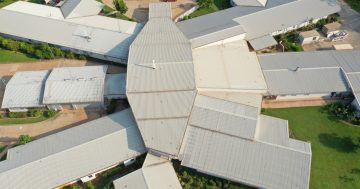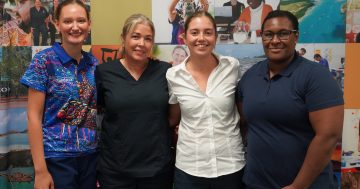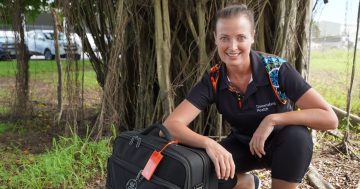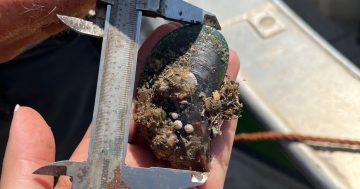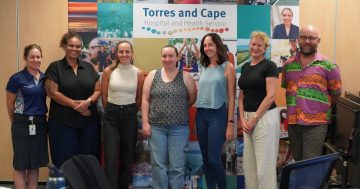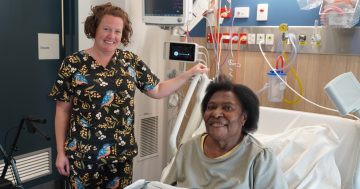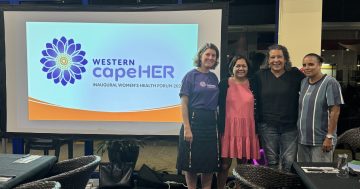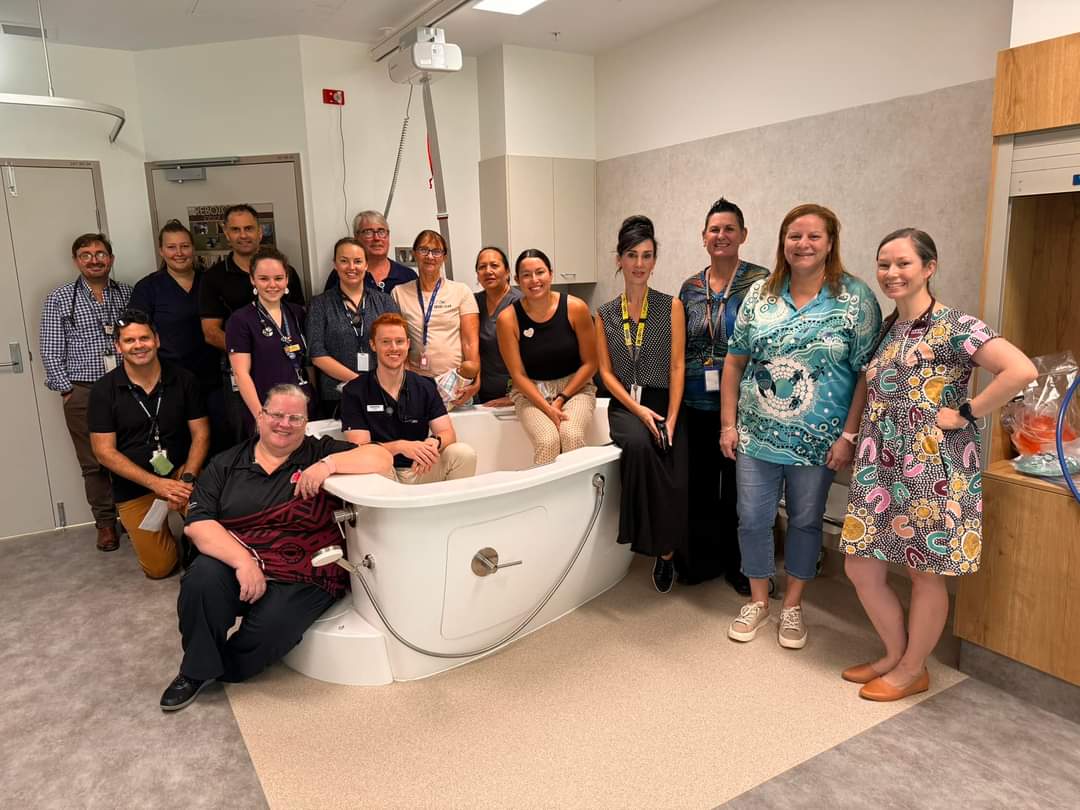
The new birthing unit will ensure more western Cape York women will get access to maternity care closer to home from 22 May. Photo: Supplied.
For the first time in 25 years, expectant mothers in Weipa and surrounding western Cape York communities will be able to welcome their bundle of joy at the Weipa Hospital.
From 22 May, soon-to-be-mothers from across the region will no longer need to travel to Cairns to access maternity care, with 18 expectant mums due to give birth between 1 June and 31 August already identified as being suitable to birth in Weipa if they choose.
Torres and Cape Hospital and Health Service (TCHHS) western director of medical services Dr John Hall said it had been hard to find the staff needed to offer birthing in the community.
“One of our challenges in recruiting to Weipa [was] you can’t get midwives and doctors who want to do birthing to come into a unit when you’re not birthing [yet],” Dr Hall said.
With the positions finally filled, Minister for Health, Mental Health and Ambulance Services Shannon Fentiman assured the community the new birthing team was “very sustainable”.
“There are many positions that are now permanently based at Weipa, plus locum support,” she said.
“We believe the service will support 50 women a year from Weipa, Napranum, Aurukun and Mapoon; this is such great news for mums and bubs and families in communities across the western Cape.”
Dr Hall, a rural generalist in obstetrics, said the team was highly capable, even when things did not go according to plan.
Six weeks ago, the team performed a successful emergency caesarean, after which the baby was transported to Brisbane.
“One of the most important things about providing a birthing service in a remote community is access to emergency services,” he said.
“We don’t have a special care nursery as is, but we do have the doctors and midwives who are highly trained; we can manage and provide the same sorts of care that you get in a special care unit in a temporising way to make sure that baby stays well for transfer.
“It means that we can provide the service and the community can feel safe that they’ve got good backup in Weipa.”
Dr Hall said there was a high need for people with similar qualifications in rural and remote areas.
“In the last 20 years, 150 birthing services have closed across rural Australia,” he explained.
“[It] is so important to maintain the services in these towns, so that community gets access to care across a broad range of services, particularly in remote [areas] where people physically can’t get in and out easily.
“I think it’s a basic human right to be able to have access to birthing and emergency services.”
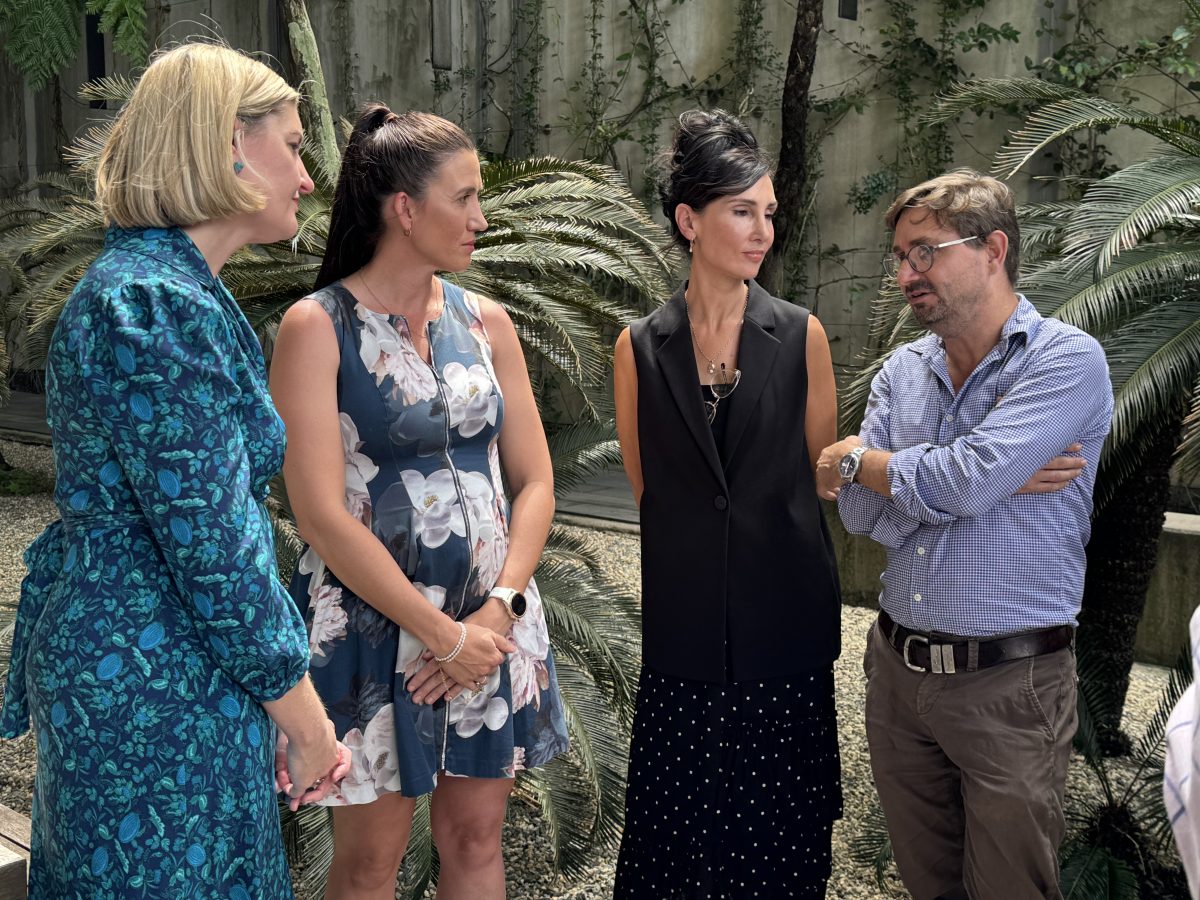
Minister for Health, Mental Health and Ambulance Services, expectant Weipa mother Liz Weidman, TCHHS midwifery director Michelle O’Connor and western director of medical services Dr John Hall discuss what the recommencement of local birthing services will mean for the western Cape York community. Photo: Chisa Hasegawa.
Original Article published by Chisa Hasegawa on Cape York Weekly.


